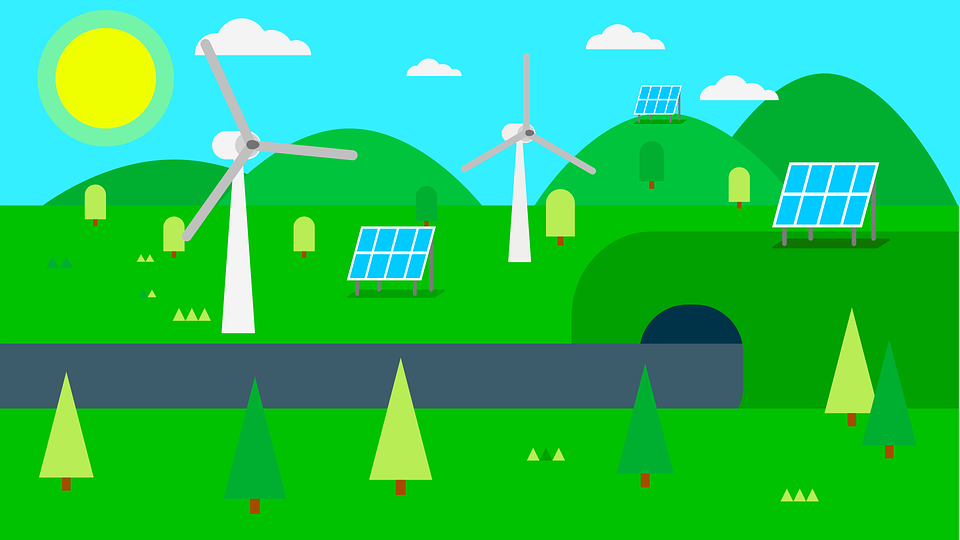
Distributed or decentralized electricity generation means that electricity is generated from a large number of small sources close to the places where it is mainly consumed.
Distributed generation may mean that in the future many places will be self-sufficient and will not need to be connected to the national grid at all.
Most electrical energy today is generated in large, centralized sources, such as coal-fired, nuclear, gas-fired, or hydroelectric power plants. Electrical energy is produced and then transmitted over long distances to areas where it is consumed, and some of it is lost along the way. Decentralized generation, on the other hand, relies on numerous small (hydro, biogas, solar, wind, and other) power sources the output from which is usually not greater than 10 megawatts and is consumed close by (e.g., within a specific village, town, or industrial enterprise). Decentralized power sources are usually more ecological, improve security of supplies, and minimize transmission losses. They may be managed as part of a smart grid. That management can be rather complex due to the sources’ often unstable production. Typically, electricity storage facilities are also important components of decentralized systems.
Distribuovaná nebo decentralizovaná výroba elektrické energie znamená, že elektrická energie se vyrábí z velkého množství menších zdrojů v blízkosti hlavních míst spotřeby.
Decentralizovaná výroba může v budoucnu znamenat, že mnoho míst bude energeticky soběstačných a nebude je vůbec třeba připojovat k celostátní přenosové soustavě.
Většina elektrické energie se dnes vyrábí ve velkých centralizovaných zdrojích, jako jsou uhelné, jaderné, plynové nebo vodní elektrárny. Elektrická energie se vyrobí a poté je skrze přenosovou soustavu transportována na velké vzdálenosti do míst, kde se spotřebuje, přičemž část se jí při přenosu ztrácí. Decentralizovaná výroba naproti tomu spoléhá na řadu malých (vodních, bioplynových, solárních, větrných a dalších) zdrojů, jejichž výkon obvykle nepřesahuje 10 MW a spotřebovává se někde blízko, například v konkrétní obci, městě nebo průmyslovém podniku. Decentralizované zdroje energie jsou obvykle ekologičtější, zvyšují bezpečnost dodávek a minimalizují ztráty při přenosu. Mohou být řízeny jako součást inteligentní sítě, jejich řízení však může být vzhledem k jejich často nestabilní výrobě velmi komplexní. Důležitou součástí decentralizovaných systémů jsou obvykle také zařízení pro skladování elektrické energie.
English Editorial Services’ mission is to assist international businesses and organizations of all sizes to communicate clearly, correctly, and persuasively with their business partners and target audiences.
Simply subscribe to receive our Business Term of the Day at no charge to your inbox each business day, with explanation in English and Czech.



English Editorial Services’ mission is to assist international businesses and organizations of all sizes to communicate clearly, correctly, and persuasively with their business partners and target audiences.
Simply subscribe to receive our Business Term of the Day at no charge to your inbox each business day, with explanation in English and Czech.

